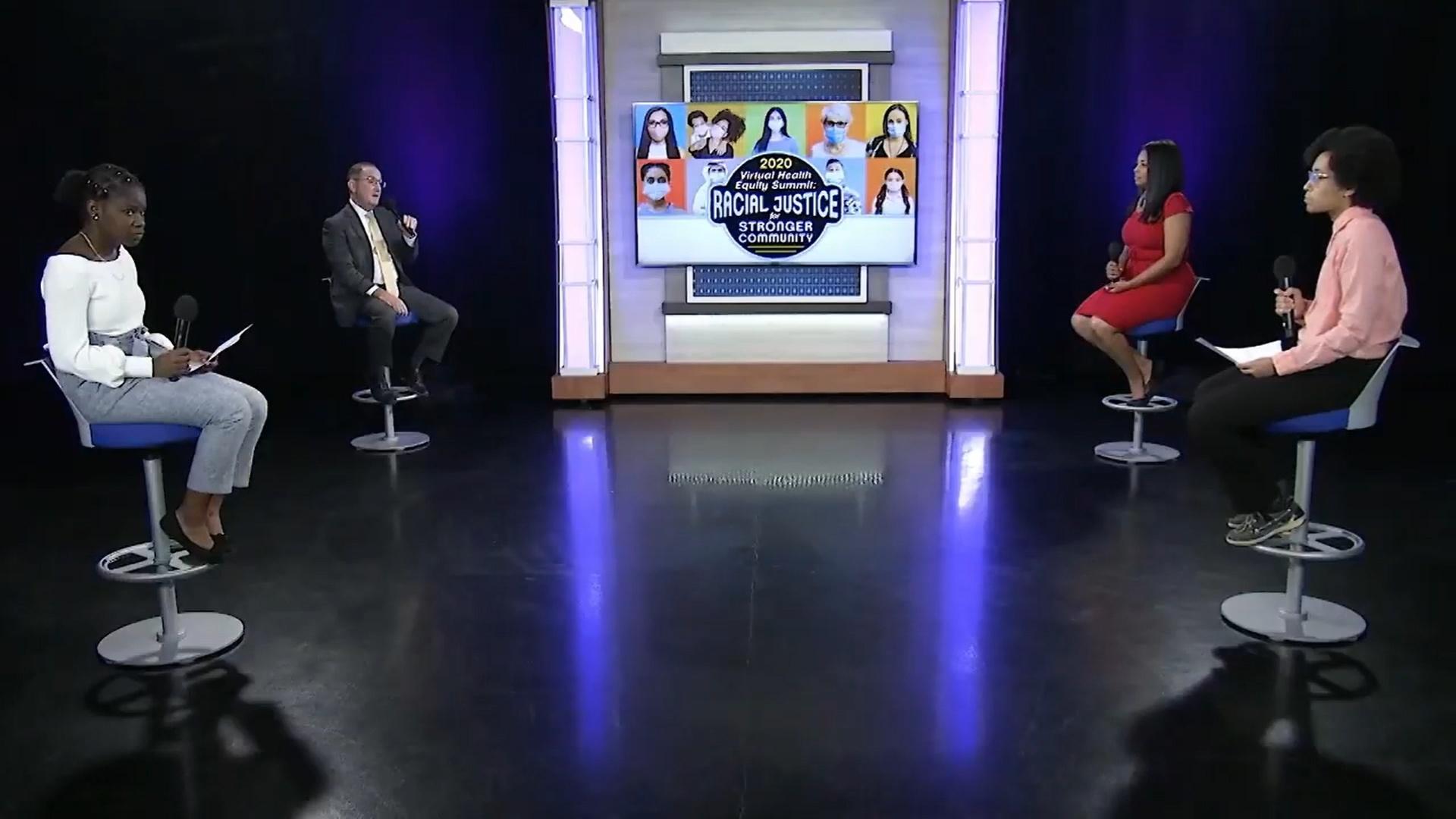BETHLEHEM, Pa. (WLVT) - Hispanic Center Lehigh Valley connects local Latinos to resources in the community, and the organization's third Health Equity Summit focused on racial justice.
Lehigh Valley Public Media's Genesis Ortega hosted the virtual event Tuesday, which included pre-recorded portions and a live Q&A session. (Lehigh Valley Public Media was a sponsor.)
"It is imperative that Hispanic communities listen, learn, share and stand alongside black communities to achieve true equity, to also look inward, reflecting and addressing injustices or biases within our homes, schools and larger communities," Ortega said in a pre-recorded introduction.
Three sessions covered education, health and colorism. Ortega sat down with two high school students from the Bethlehem Area School District as well as superintendent Dr. Joseph Roy to talk about racial differences in the classroom. The district has more than 13,000 students, and about 60 percent are students of color.
"With my honors classes, especially the science classes, I feel there's not very many minorities," said Liberty junior Xenise Price. "I feel intimidated by the other white kids, because I don't see many people of color on me. So, I feel as if I need to work a lot harder to be with them."
"I've been in classes where there have been a lot of students of color, and I've also been in classes where there have been a lot of white students," added Freedom sophomore Dayanara Marrero-Allen. "So my question is, 'Why does it seem like white students get more opportunities when it comes to placement in these higher level classes?'"
"It's not just a high school issue, we have to start farther back," Roy answered. "When students are in elementary school, middle school, we're laying the groundwork for courses. And if we do a better job of engaging students, and especially around reading early on, and improving literacy school skills, then those opportunities are open to students as they get to the higher level courses."
Dr. Rajika Reed, senior network director of epidemiology and strategy at St. Luke's University Health Network, dug into the impact of COVID-19 on communities of color. The pandemic continues to affect these communities disproportionately.
While African-Americans and Latinos make up around 31 percent of the country, they account for 55 percent of cases, based on CDC data from January to May 2020.
Reed said several factors impact a person’s health, including affordability and access to resources.
"You need resources in order to exercise, for example," she said. "You need time and money to purchase and prepare healthy, nutritious food. Those are all factors that go into a healthy lifestyle, so understanding that disparity piece is really important, because it's always tied back to inequity."
The final session took a closer look at colorism in the Latinx (gender-neutral term for Latino/Latina) community. Dr. Griselda Rodriguez-Solomon from the City University of New York explained that colorism is a form of internalized oppression that has roots in European colonialism.
"These ideas and perceptions of beauty and value and worth were really indoctrinated into us and forced onto us to the point where we then internalize them, we take them in, and we start behaving in ways that mimic whiteness," she said.
Colorism, Rodriguez-Solomon said, is a "learned behavior" in many communities of color to identify darker shades of skin with inferiority.
"Most of our Latinx representation politically are those that are perceived to be whiter or lighter skin," she said. "I'm grateful for them, because they are still stepping in, generally speaking, and opening doors for others to come through -- but it's still a symptom of a society that deems lighter skin to be more valuable."
On Wednesday, Hispanic Center Lehigh Valley will welcome CATE, a mobile COVID-19 testing and education unit making its way through Pennsylvania. People can get tested for COVID-19 from 10 a.m. to 2 p.m. in the parking lot of St. John's Windish Evangelical Lutheran Church on Fourth Street.




